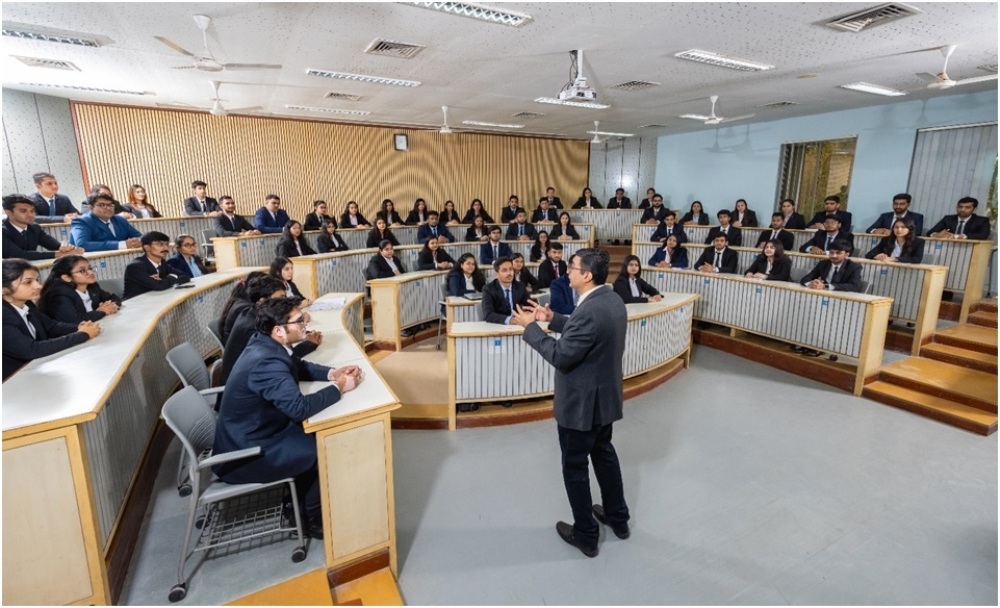
Master of Business Administration (MBA), launched in 1996, is the flagship programme of the Institute of Management, Nirma University. This programme aims to develop well rounded business leaders with cross functional skills, global outlook and goal orientation. The curriculum is comprehensive, contemporary and practice oriented. It is benchmarked against the best in the world and reviewed by faculty members in consultation with industry practitioners, alumni, and students.
The pedagogy comprises a prudent mix of lectures, classroom discussions, case analysis, simulations, role-plays, group discussions, special sessions by industry professionals, management games, sensitivity training, management films, industrial visits, and industry interaction. The programme curriculum and its delivery enables students to develop strong functional knowledge, cutting-edge and sustainable employable competencies and a futuristic mindset to succeed in the Volatile, Uncertain, Complex, and Ambiguous (VUCA) world.
The MBA Programme is accredited by the National Board of Accreditation (NBA). The programme has earned a high credibility in the business world over the past 26 years and many of our alumni have contributed to several reputed organisations through their leadership positions while many alumni members are successful entrepreneurs.
This is a two-year full-time residential programme and follows trimester system. The first year consists of core courses and elective course. The second year consists mainly specialisation elective courses. After the first-year, students are required to undertake 8-10 weeks of Summer Internship in a public or private corporate organisation. The programme offers dual specialisations (Major and Minor). Students are awarded Master’s Degree on successful completion of the programme.
After going through the programme, the students should be able to:
Faculty members at the Institute of Management, Nirma University use a variety of pedagogical tools as part of their teaching-learning process. These include:
Additionally, each course includes interactions with industry thought leaders that augment the classroom experience. Faculty members also maintain an active discussion with students through the Learning Management System (LMS) and course blogs.